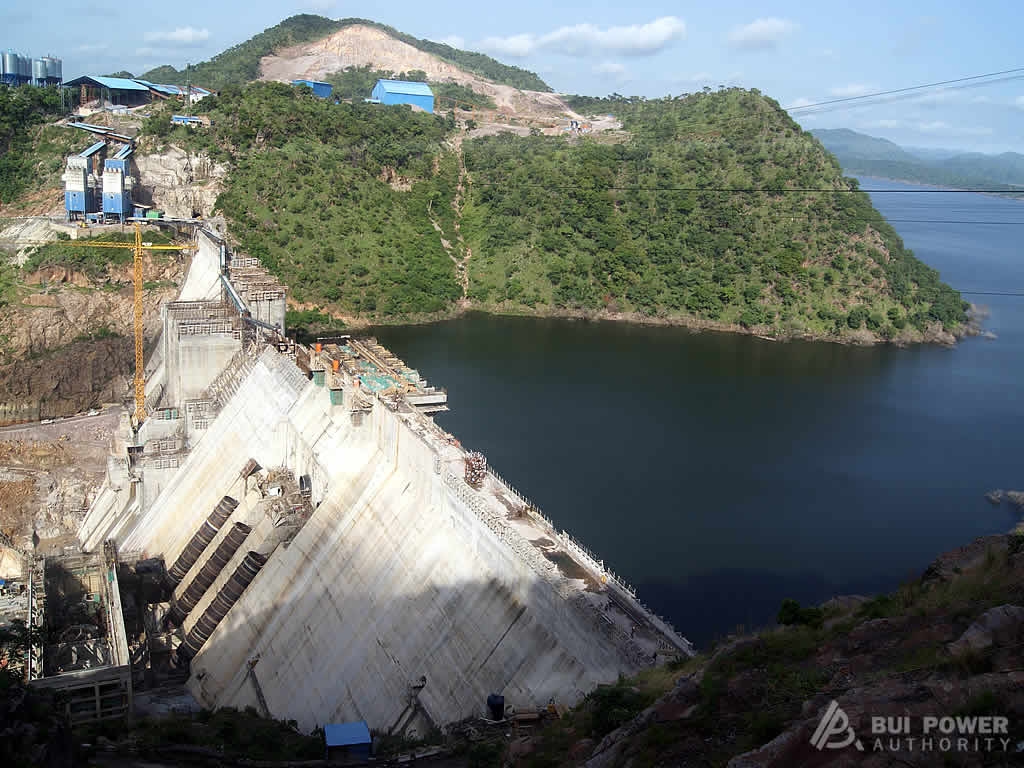
The Bui Power Authority (BPA), management of the Bui Dam in the Banda District of the Brong Ahafo Region, has said the 400 Megawatts generating plant is not a panacea to the national energy crisis.
Notwithstanding, the BPA said the dam in view of the supply demand balance for 2015, has increased daily power generation of 200MW-250MW to 360MW, to augment and help meet the national electricity demand.
Speaking to journalists after conducting them round the dam site at Bui on Wednesday, Mr Wumbilla Salifu, External and Community Relations Manager of the BPA, disclosed that the dam had generated about 182GWh or 182 million KWh of power from January to March this year.
He said it was not true that the dam had been shut down, explaining that it was providing backup generation, to the extent possible, in cases of plant outages and emergencies at other power generating stations.
Mr Salifu explained that the amount of energy that could be generated by the Bui plant, depended on the amount of water in the reservoir, adding that the amount of the reservoir also depended largely on the rainfall within the catchment area of the reservoir, and the corresponding inflow into the Black Volta.
“So each year, when the rainy season ends, an energy generation plan is prepared in consultation with the System Control Centre (SCC) for the optimal utilization of the available water resource,” he explained.
He added that the plan was designed to optimally meet the needs of the power network and the Authority followed it except in emergencies.
Mr Salifu observed with concern that at the end of the 2014 rainy season in last October, the reservoir level of the dam had risen to 177.9 masl which was still well below the maximum reservoir level.
“The limited amount of inflows into the reservoir during the rainy season therefore had to be used judiciously, in order to last through the dry season and until the start of the next rainy season in July 2015,” he added.
The 400MW Bui hydro-electric project, which was designed primarily for the hydro-power generation, also includes the development of an irrigation scheme for agricultural development and presents an opportunity for enhanced eco-tourism and fisheries.
The project, which was expected to cost about 622 million dollars, and was funded with concessional loan of 263.5 million, a buyer’s credit of 298.5 dollars from the government of the republic of China and Exim bank respectively together with a government of Ghana contribution of 60 million, was inaugurated by President John Dramani Mahama in 2013.
Source: GNA



